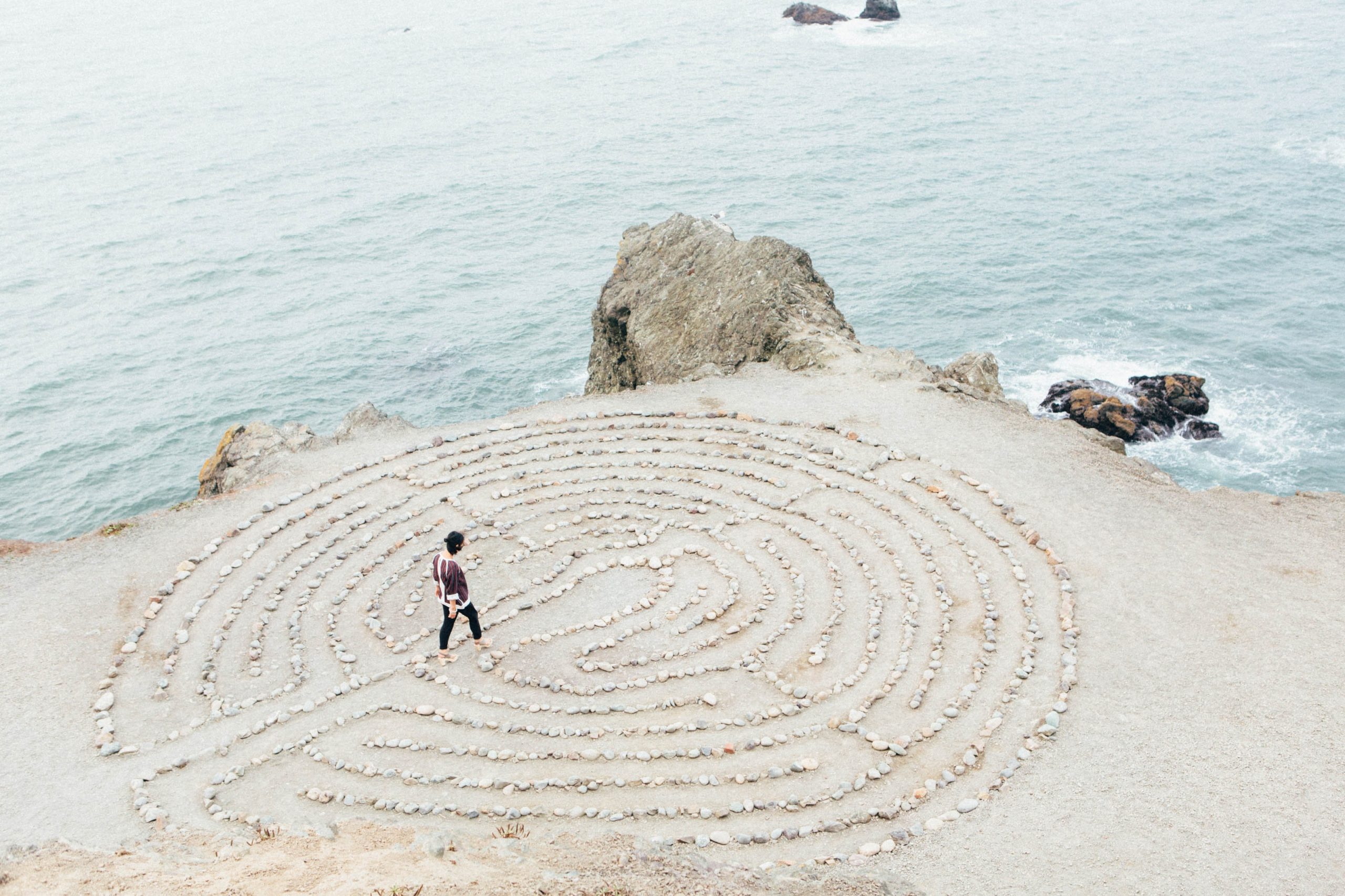What is mindfulness and meditation? – How it can change you
Learn about mindfulness and meditation and discover how it can transform your wellbeing. Enhance your focus, reduce stress and develop inner peace.

Life-changing moments don’t come around very often, do they?
In truth, we don’t tend to go looking for them.
While we bemoan the boredom and monotony of life and the repeat behavior that leads us to despair, we tend to be sceptical toward any significant change – anything that requires us to change our way of thinking.
We assume that if wonderful life changes were out there we would have found them by now. And so, we end up leaving our happiness, peace of mind, mental health to luck.
Mindfulness is a wonderful way of reconnecting with yourself and regaining control and influence over all aspects of your life.
It doesn’t necessarily get rid of problems or issues – or even solve them – but it can fundamentally change the way you think and feel about them and make sure that you minimise their impact on you mind, body, and spirit or simply don’t allow them to impact you at all.
So, mindfulness benefits us in so many ways, all of which fit into one of three categories; mental health, physical health, or spiritual health (don’t let the last category put you off if it doesn’t immediately appeal to you – it can just mean having an improved/enhanced sense of yourself, a better understanding of where you “fit in the world”).
It’s impossible to attempt to separate those three areas of life – they are as intertwined as blood, skin, and bone in what makes us “us”, but it can be useful to observe the many ways in which mindfulness can help us.
- Mindfulness and meditation
- Why meditate?
- Why be mindful?
- 10 ways mindfulness can change your life
- Final Thoughts
- Other useful mindfulness articles and news – 10 simple mindfulness for anxiety & stress, mindfulness in lockdown
Often the best way to understand what mindfulness and meditation is to look at what it is not. There are some considerable myths and illusions regarding meditation and mindfulness, and it can be helpful to remove these first to get a true understanding of its intention.
What Meditation is NOT:
- It is not concentrating on an object.
- It is not relaxation (although you will feel more relaxed by doing regular meditation)
- It is not a religious practice.
- It is not hypnosis.
- It is not thinking.
- It is not clearing your mind.
- It is not quitting your thoughts.
- It is not a trance.
- You do not have to be a Buddhist, do yoga, be gluten, alcohol, sugar, caffeine, drug, or nicotine free to meditate.
- Meditation does not have to be done seated; it can be done laying down or walking.
- It does not have to be practised in a quiet room.
- You can meditate anywhere.
What Meditation IS:
- It is being aware of the present moment.
- It is the formal practice of mindfulness.
- It is mostly practiced by bringing the focus to the breath. When the mind wanders, we guide the attention back to the breath.
- It is allowing thoughts feelings and emotions to arise and pass.
- It is placing a distance between you and your thoughts.
- It is changing your relationship to your thoughts.
- It is always done with a non-judgmental attitude toward oneself i.e., with kindness.
- It is strengthening the Pre – frontal cortex; an area of the brain associated with concentration.
What Mindfulness is NOT:
- It is not walking slowly everywhere.
- It is not ‘oohing – and ahhing’ at everything.
- It is not floating around with our heads in the clouds.
- It does not mean we never lose our temper.
What Mindfulness IS:
Why meditate?
- We meditate to train the mind to be present to what is happening right now.
- Often our minds are busy planning, ruminating, or solving – and while all these are massively beneficial – often our minds do not know when to quit. If we are trying to solve a problem – whilst listening to our 10-year-old child tell us about their day – not only will we miss what they are saying – we will miss the value of the moment.
- We meditate to take control of our minds.
- We meditate to understand we are not our thoughts.
- We meditate to be able to stay focused.
- We meditate to live a happier life.
Why be mindful?
- To learn to respond rather than react to our emotions.
- To be grateful for what we have.
- To be a better friend / partner / work colleague.
- To improve relationships with our children and family members
- So we don’t miss out on life
- To improve our relationship with ourselves.
- To be kinder to ourselves and others.
- To understand ourselves and our habitual behaviours and realise we have the possibility to change.
- We practice mindfulness to live a happier life.
-
 Anxiety
AnxietyWhen you learn to process thoughts and feelings differently it can have you view your anxieties (large and small) from a brand-new perspective. Establishing a new point of view can help you change the way you feel about things that have historically made you feel anxious and generated negative and panicky thoughts and feelings.
-
Depression
You start to see negative or painful thoughts as less powerful. An understanding that they lack credibility means they quickly start to hold less weight. You might continue to have those thoughts, but you are no longer weighed down by them – you can be aware of them as they arrive, and more importantly, depart.
-
Relationships
Whether you want to develop new, more positive relationships, or improve and enhance current (or even rekindle old) relationships, practising mindfulness can help you form deeper, more meaningful connections with others.
-
Relaxation
Letting go of tension and pre-occupied thinking is an important part of mindfulness. Mindfulness practises and exercises can be extraordinarily relaxing as well as exhilarating.
-
Focus
Understanding “being in the moment” helps you become, and remain, fully engaged in everything you do. Not only that – it generates an increased ability to deal with problems and negative issues as you become aware of them.
-
Sleep
The stresses and strains of life take their toll on us. We’re so switched on in “active mode”, our minds constantly racing for information, solutions to problems (trivial and major) that we often forget the ability of just “being”. Recapturing the ability to “just be” not only helps us chill out and relax, but prepare ourselves naturally for sleep.
-
Fatigue
It’s rather stating the obvious – but with your physical and mental health and wellbeing benefiting immeasurably from mindfulness practises and exercises, reduced stress, greater relaxation, better sleep, and reduced anxiety – life gets a whole lot easier. Rather than trudging through life as if stuck on some dreary energy-sapping treadmill, mindfulness puts more than just a spring in your step.
-
Happiness/Contentment
Mindfulness makes you far more likely to enjoy the happy moments and pleasures in life as they happen, rather than dismiss them because you’re too preoccupied with negative thoughts and feelings.
-
Career
Good employers are waking up to the power of mindfulness in the workplace. In the same way as providing workplace gym facilities, staff restaurants, and great health insurance leads to a healthier, happier, more content and motivated workforce – encouraging employees to adopt mindfulness does the same. All that aside, it might sound a little mercenary, but mindfulness enables you to become a more aware, more observant, more thoughtful, more efficient version of “you”.
-
Addiction
Humankind has always been absorbed in the pursuit of happiness. The more we pursued it, the more it seemed to elude our grasp. Why? Because we believed that control can only be achieved through struggle. Allen Carr discovered that, when it comes to addiction, whether it be to cigarettes, alcohol, gambling, sugar, junk-spending, cannabis, cocaine, or even heroin, it’s the struggle that makes it hard, if not impossible, to quit. Allen’s approach contained so many elements of mindfulness that it was the most natural development imaginable to apply the Easyway method to the practise of mindfulness.
We all want to discover a better way of living, which makes us calm and contented. The key to happiness lies within; you don’t need to cling to external ‘pleasures’ – false pleasures that come with their own negative baggage. When you leave them behind, you’re not giving anything up; you’re making marvellous, positive gains.
Mindfulness lies at the heart of Allen Carr’s philosophy. The core principles of Easyway are those of mindfulness. Easyway has proved itself the world’s number one method for overcoming addictions. It can also map out an easy path to a gateway. One that leads to a mindful existence.
Find the Easyway to mindfulness
What is mindfulness and meditation?
Final thoughts
Mindfulness and mediation will help you strip away the illusions that leave us prey to negative thoughts and behaviours, showing us how to gain clarity and control if we focus on who we truly are rather than being distracted by those things that harm and trouble us.




